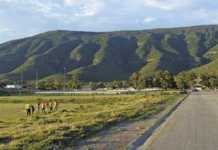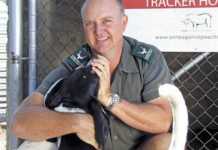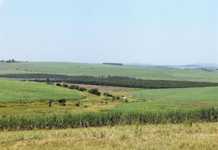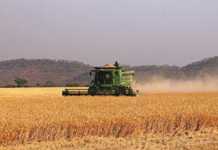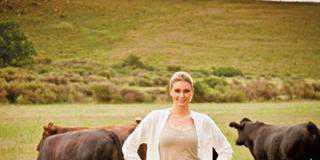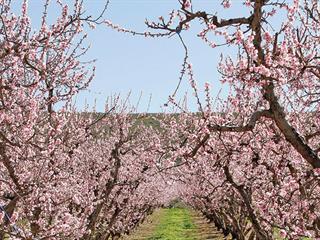
The Ceres valley and its surrounding areas are blessed with fertile soils, ample water and the ideal climate for the production of high-quality fruit and vegetables. The fruit produced here is exported across the globe, and the area’s wide variety of vegetables serves the domestic market almost year-round. The region has given birth to some of South Africa’s most successful farming businesses, and its most recent offering might prove to be one of the most impressive developments in agriculture the country has seen in recent times.
Nurturing change
A group of commercial farmers from the Witzenberg region has partnered with the Witzenberg Local Municipality, the region’s agribusiness sector and the wider community to launch “a radical new approach to land reform”. This aims to fundamentally change land ownership patterns and socio-economic dynamics in the region.
The group regards the approach as radical because of the large amount of high-value, high-potential irrigation land and other resources that will be invested in the project, and because it requires no financial support from government. Instead, it will entail commercial farmers giving away a 30% portion of each farm or project that forms part of the initiative.Taking part in the intiative is farmer Peter Wolfaardt of Verdun Estates. He says that the region’s leading farmers decided to pro-actively take part in land reform and become agents of change.
“We decided to act and become part of the solution, instead of remaining part of the problem,” he says. Prof Nick Vink, chairperson of the department of agricultural economics at Stellenbosch University, has compiled a report on the Witzenberg Partnership. He says that Ceres and other towns in the area, such as Tulbagh, Prince Alfred’s Hamlet, Wolseley, and Op-Die-Berg, and the rural areas of Warm Bokkeveld, Koue Bokkeveld and Agter-Witzenberg, have not escaped the “general SA malaise of the consequences of apartheid and its predecessors”.
Find out the secret to Namibia’s successful land reform process below.
In addition, the area has suffered the effects of the current low economic growth rate, high unemployment rate, highly skewed distribution of income and opportunities, as well as a wide range of social pathologies. It is for this reason that the region’s farmers have come together to launch the Witzenberg Partnership. This, according to Vink, is an initiative to ensure successful land reform, job creation and social cohesion – in other words, a means of implementing the National Development Plan (NDP).
The Witzenberg Partnership
Currently the Witzenberg Partnership includes more than 50 projects that will each result in the establishment of independent and successful black commercial farmers in 10 to 15 years. The projects will involve 4 000ha of fruit trees in total, representing an investment of R1,3 billion. They will be financed by participating producers, and their involvement will ensure the best possible chance of success, says Gerrit van Vuuren of Joubert van Vuuren Attorneys. The firm will act as the partnership’s project leader.
“Goals include the establishment of successful black farmers, to involve the whole community in an inclusive process and to extend the initiative to other areas and agriculture-related industries,” he says. Commercial farmers acting as mentors for black farmers will draw up business plans for the new farming operations. The projects will be supplemented by empowerment initiatives in the agricultural value chain, and socioeconomic projects will include training facilities, housing projects and youth programmes.
The PALS proposal
The land reform model that will be used, the Partnerships in Agricultural Land Solutions (PALS) framework, has been drafted in accordance with the principles of the NDP and the Witzenberg Municipality’s Integrated Development Plan.
Encouraging shareholders
Participating commercial farmers will donate 30% of the shares in a project to the beneficiary farmers, ensuring that the latter have a veto over major decisions. As a minority shareholder, the new farmer will be indemnified from the new venture’s debts.
In addition, beneficiaries will be given the option of purchasing all shares in the farming business.The operation’s business plan for the first 10 years will be based on industry norms and mentor experience. During or after this 10-year period, the black farmer can buy more shares in the company to become the majority shareholder. The option to purchase the shares of the commercial partner is therefore granted from day one, and can be exercised as soon as the project is regarded as successful.

A number of Cabinet members recently visited Ceres to learn more about the Witzenberg Partnership. From left to right, front, are: Gerrit van Vuuren (farmer), Gwede Mantashe (secretary-general of the ANC), Senzeni Zokwana (agriculture minister) and Gys du Toit (Jnr) (farmer). From left to right, back: Elton Jefthas (farmer), Rossouw Cillie (farmer), Gys du Toit (Snr) (farmer), Gugile Nkwinti (land affairs minister) and Pieter du Toit (farmer).
Courtesy of the Witzenberg Partnership
Farmer training
In addition to the establishment of new farming units, the initiative will focus on further improving or restructuring current Land Redistribution for Agricultural Development projects. A training college for black farmers will be established in Ceres, with another college for artisans in Wolseley, and educational and economic growth projects will be implemented.
Other aspects of the PALS proposal include:
- Black farmers being given priority access to value chains;
- Providing security of tenure on privately owned land;
- The establishment of worker trust for teach project, with each project receiving 5% of profits for community projects of its choice;
- Investing in municipal livestock farms at Nduli and Tulbagh;
- Community projects such as food gardens at schools and nearby residential areas;
- Housing for farm workers.
Government involvement
Participants in the initiative have committed themselves to going ahead with the plan without government support, but have invited government to be an enabling partner by assisting with extending irrigation schemes, approving water permits for the storage of non-allotted winter water, and accelerating the process by facilitating more affordable loans.
According to Vink, the NDP argues that farmers who commit substantial resources to land reform should be entitled to favours from the state, such as guaranteed BEE status, tax breaks and indemnity from further land reform. For example, in the event of a restitution claim, successful claimants should be given the options of cash payment or alternative land only.
Participants in the Witzenberg Partnership have identified two potential avenues that the state should consider exploring, explains Vink. These are:
- Recognition of the commercial farmers’ contribution in a manner that secures their ownership rights in land and water and other resources; and BEE Level 4 or equivalent status for the partnership in terms of the appropriate BEE Scorecard.
Local solutions to local problems
Land reform, says Vink, should be about improving the lives and livelihoods of South Africans in a manner that reduces the dualism between black and white farmers, and between commercial and small-scale farming systems. Instead, land reform has become about land, “as if chasing hectares will ever be sufficient for solving the land question that we inherited from our apartheid past”.
The land reform proposals of the NDP encourage local solutions to local problems. The Witzenberg Initiative is one such local initiative that takes into account the unique features of the area. “It is for this reason that the Witzenberg Partnership, and all major stakeholders, deserves to be taken seriously,” says Vink.
Phone Gerrit van Vuuren on 023 312 3152 or email him at [email protected].


